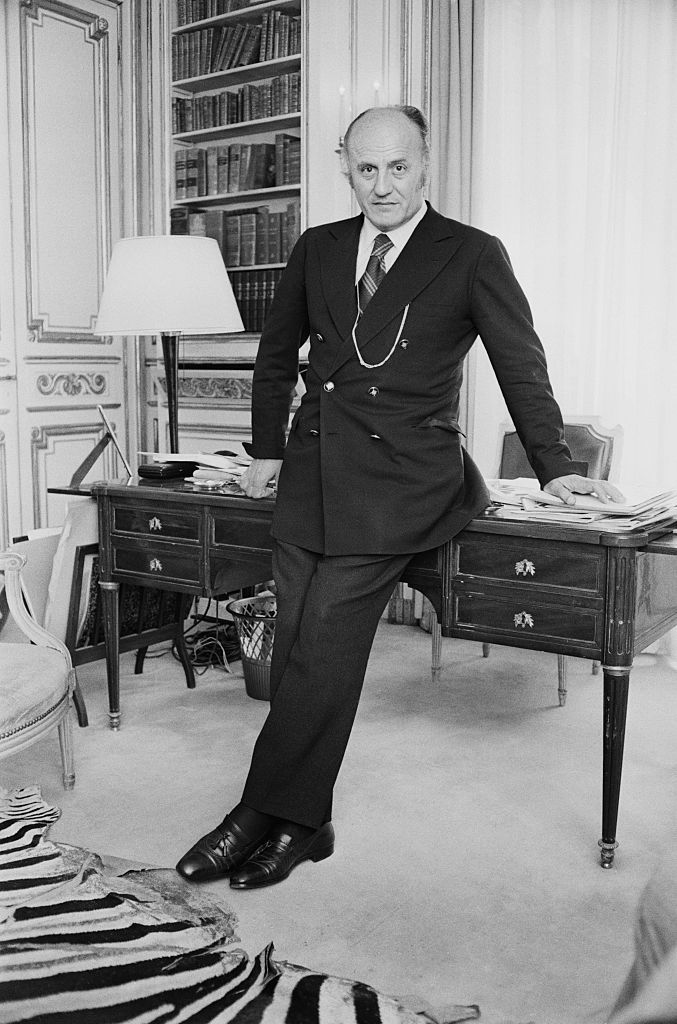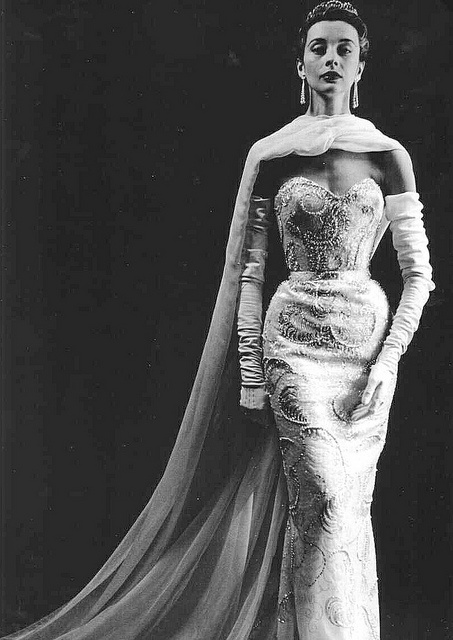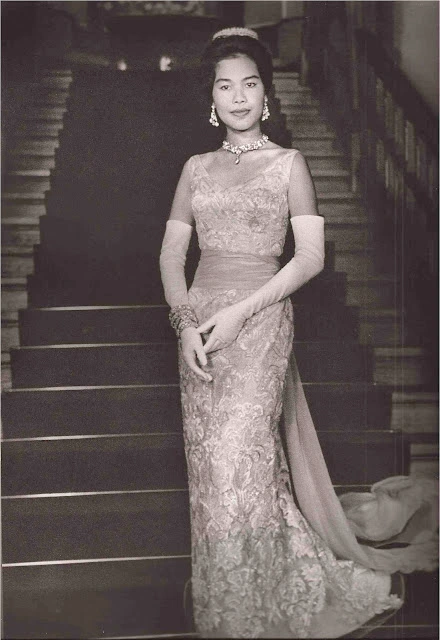Pierre Balmain
1914 - 1982

Pierre Balmain emerged as one of the most influential fashion designers of the post-war era. Born in Saint-Jean-de-Maurienne, France, he initially studied architecture at the École des Beaux-Arts before discovering his true passion for fashion design.
After working at Molyneux and Lucien Lelong alongside Christian Dior, Balmain founded his own fashion house in 1945. His first collection featured long, bell-shaped skirts with small waists – a design that became popular among both Parisian socialites and Hollywood stars. He described dressmaking as "the architecture of movement."
Balmain was known for his sophistication and elegance, creating designs that featured impeccable embroidery and intricate details. His clientele included royal families from around the world, including Queen Sirikit of Thailand, for whom he created an entire wardrobe for her 1960 tour of the United States.
Throughout his career, Balmain expanded globally, opening stores in the United States and creating costumes for film and theater. He was one of the first French designers to tour internationally, promoting haute couture worldwide. His legacy continues through the House of Balmain, which maintains his vision of elegant, structured, and sophisticated fashion.
ICONIC DESIGNS
Elegant silhouettes and impeccable craftsmanship that defined the sophisticated Parisian style.
The Jolie Madame Style (1949)

A signature silhouette featuring nipped-in waists and full skirts that embodied post-war elegance. This design became synonymous with the sophisticated Parisian woman.
Thai Silk Evening Gowns (1960)

Created for Queen Sirikit of Thailand's U.S. tour, these gowns combined Western silhouettes with Thai silk, revolutionizing how Eastern fabrics were used in haute couture.
Un impact durable
Pierre Balmain a laissé une empreinte indélébile sur la mode française et internationale, avec un style qui alliait l'élégance parisienne à une vision architecturale du vêtement.
Son approche de l'internationalisation de la mode française et sa capacité à habiller aussi bien les stars d'Hollywood que les familles royales ont contribué à établir Paris comme capitale mondiale de la haute couture.
"La couture est l'architecture du mouvement."